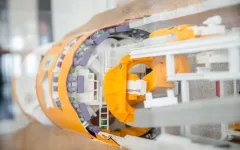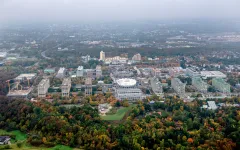
SFB/TR 391
Modelling Data for the Energy and Mobility Transition
Thanks to digitalisation, more and more data is becoming available. Deriving reliable predictions from this data for the energy and transport sector is the aim of the Collaborative Research Centre.
In order to achieve the climate targets, the use of fossil fuels must be reduced, both in the generation of electricity and heat and in the transport sector. For measures to reduce CO2 emissions to be widely accepted by the population, the positive aspects must outweigh possible negative effects – for example on employment, mobility or prosperity. For this reason, political decisions should, wherever possible, be made on the basis of solid empirical findings. Additionally, their impact on people’s everyday lives and on the economy as a whole should be accurately assessed.
This is where the Collaborative Research Centre/Transregio 391 “Spatio-temporal Statistics for the Transition of Energy and Transport” comes in: Thanks to increasing digitalisation, more and more data is available that is automatically collected at different locations and at different times. In order to derive relevant and reliable predictions for the energy and transport sector from this data, the scientists will develop innovative statistical methods for such spatio-temporal data and use them to analyse those data. The developed methods are supposed to be transferable to other sectors.
The speaker university is the TU Dortmund University; the co-spokesperson at the Ruhr University Bochum is Prof Dr Holger Dette from the Chair of Stochastics, Faculty of Mathematics. Further partners are the University of Duisburg-Essen, Dortmund University of Applied Sciences, the Karlsruhe Institute of Technology, the University of Hamburg, the University of Münster and the RWI-Leibniz Institute for Economic Development.


